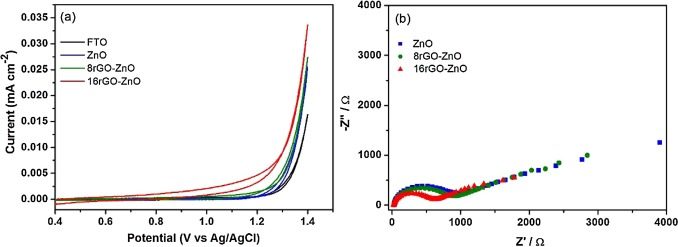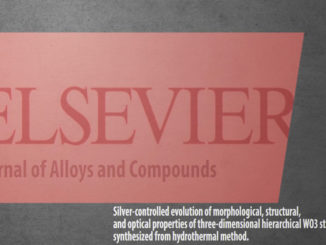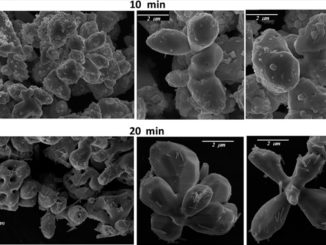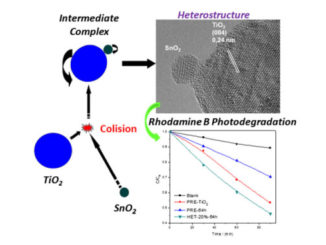
rGO-ZnO nanocomposites for high electrocatalytic effect on water oxidation obtained by microwave-hydrothermal method
Abstract: Reduced graphene oxide-zinc oxide (rGO-ZnO) nanocomposites were successfully synthesized using a facile microwave-hydrothermal method under mild conditions, and their electrocatalytic properties towards O2 evolution were investigated. The microwave radiation played an important role in obtainment of well dispersed ZnO nanoparticles directly on reduced graphene oxide sheets without any additional reducing reagents or passivation agent. X-ray diffraction (XRD), Raman and infrared spectroscopies indicated the reduction of GO as well as the successful synthesis of rGO-ZnO nanocomposites. The chemical states of the samples were shown by XPS analyses. Due to the synergic effect, the resulting nanocomposites exhibited high electronic interaction between ZnO and rGO sheets, which improved the electrocatalytic oxidation of water with low onset potential of 0.48 V (vs. Ag/AgCl) in neutral pH and long-term stability, with high current density during electrolysis. The overpotential for water oxidation decreased in alkaline pH, suggesting useful insight on the catalytic mechanism for O2 evolution.
Author(s): Romeiro, Fernanda C.; Rodrigues, Monica A.; Silva, Luiz A. J.; et al.
Applied Surface Science
Volume: 423 Pages: 743-751 Published: 2017
DOI: https://doi.org/10.1016/j.apsusc.2017.06.221




